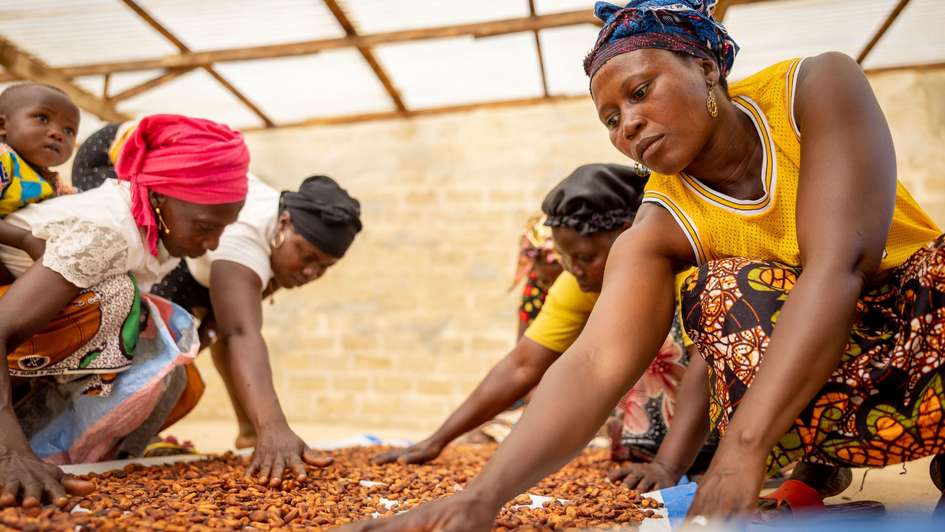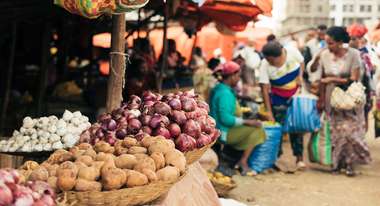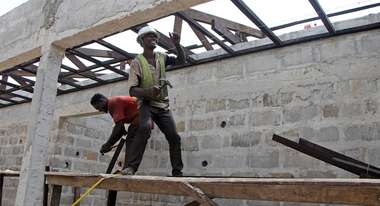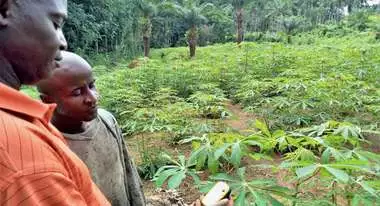GFFA 2024 Panel: Zero hunger in agricultural production
At the Global Forum for Food and Agriculture 2024 (GFFA 2024), experts will discuss how human rights can be realized in supply chains.

On January 19th, 2024, Welthungerhilfe, Meo Carbon Solutions and the Commercial law firm GvW Graf von Westphalen present a panel discussion titled "Zero hunger in agricultural production: Not yet a reality, but achievable! Working together for human rights in supply chains".
Many countries facing hunger cultivate agricultural products for the global market, with smallholder farmers and farm workers suffering the most from hunger. Ultimately, as long as the human right to food has not been implemented in our supply chains, they are neither resilient nor sustainable. Where there is hunger, human rights will also be violated in other ways.
GLOBAL FORUM FOR FOOD AND AGRICULTURE 2024
Zero hunger in agricultural production
Not yet a reality, but achievable! Working together for human rights in supply chains
Date: January 19th, 2024
Time: 11:30 am - 1:00 pm CET
Location: CityCube Berlin
Participation in the expert panel is possible after valid registration for the GFFA. For more information visit the GFFA website.
This is where the Food Security Standard (FSS) comes into play: it enables businesses to identify and address social risks in the context of food security in agricultural production. Producers in the Global South are already using the FSS to conduct risk analyses, establish prevention and remedial measures and monitor the process continuously. The FSS is available in two adaptable approaches: an additional certification to existing sustainability standards or a management tool for non-certified producers.
This panel will feature stakeholders – including scientific experts, the private sector, and civil society – who will discuss the needs and pitfalls of implementing human rights in supply chains. They will discuss current examples ranging from the Global South, where there are already approaches to implementing human-rights-based diligence requirements, to internationally active companies.
The aim is to demonstrate how the interplay of responsible corporate governance and supply chain legislation can contribute to food security, sustainable production and socially beneficial supply chains.
Speakers:
- Dr. Rafaël Schneider, WHH
- Dr. Lothar Harings, GvW
- Dr. Jan Henke, FSS, Meo, 4C/ISCC
- Alejandra Rueda-Zarate, Sustainable Development Initiative NES NATURALEZA S.A.S. (Colombia)
- Dr. agr. Bettina Rudloff, SWP
- Lutz Hartmann, fruitbox Africa
- Swantje Nilsson, BMEL








